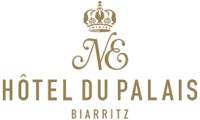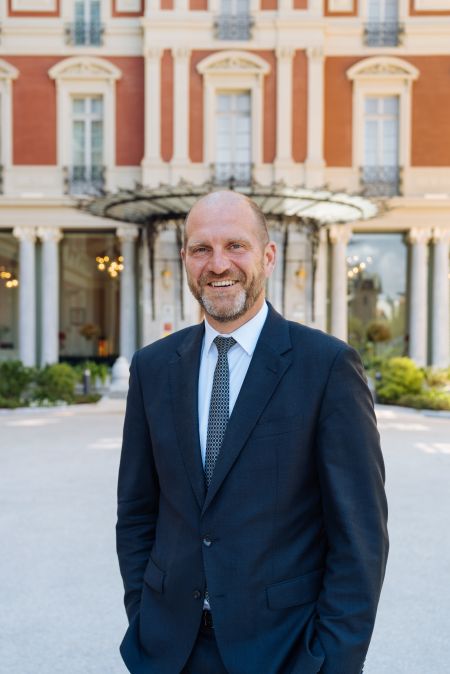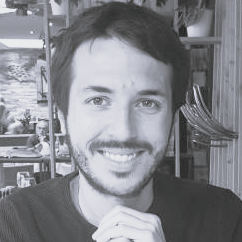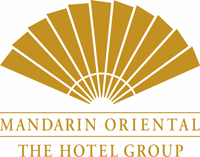
INTERVIEW - VINCENT POULINGUE, GENERAL MANAGER, HÔTEL DU PALAIS, BIARRITZ: "IN THE LUXURY HOTEL BUSINESS, EVERYTHING HAS TO BE DONE WITH EASE" (France)
Five months after taking up his post, Vincent Poulingue talks about his arrival as General Manager of the Hôtel du Palais, the institution of Biarritz and the Atlantic coast, and his vision of a demanding profession in which you have to constantly set an example. |
 |
INTERVIEW - VINCENT POULINGUE, GENERAL MANAGER, HÔTEL DU PALAIS, BIARRITZ: "IN THE LUXURY HOTEL BUSINESS, EVERYTHING HAS TO BE DONE WITH EASE" (France)
Five months after taking up his post, Vincent Poulingue talks about his arrival as General Manager of the Hôtel du Palais, the institution of Biarritz and the Atlantic coast, and his vision of a demanding profession in which you have to constantly set an example. |
Category: Europe - France - Interviews and portraits
- Interviews
Interview made by Christopher Buet on 2023-08-11
 After an experience in Porto, Vincent Poulingue took over the Hôtel du Palais in April 2023.
Photo credit © Courtesy of Hôtel du Palais in The Unbound Collection by Hyatt
Built in 1855, the building was not originally intended to be a hotel. In fact, it was Napoleon III who ordered its construction as a summer residence for Empress Eugénie. The Villa Eugénie, as it was known, remained the property of the imperial couple until 1880, when it was sold and transformed first into a hotel-casino and then into a hotel from 1892.
This anchorage, inherited from the Second Empire, has survived the test of time and has been sublimated by the recent renovations, which ran from 2018 to 2022. The aim of this contemporary heritage project is to enable the Hôtel du Palais to keep pace with the times and meet the challenges of the future, particularly in terms of the environment.
A prospect that Vincent Poulingue is enthusiastic about. Appointed General Manager at the beginning of 2023, this Norman with Breton roots intends to maintain the prestige of the hotel through a harmonious blend of high standards, luxury and conviviality, as he explained at length to the Journal des Palaces.Journal des Palaces: Could you outline your career path?Vincent Poulingue: I went to a hotel school in Dinard, where I obtained a BTS, which I completed with a postgraduate MBA in International Hotel Management at ESSEC, in partnership with Cornell. I then joined the Barrière group as a management controller in the hotels, first at the Royal in La Baule, then in Deauville and finally at Le Normandy, still in Deauville, where I ended my career as financial director. Then I spent 14 years with InterContinental as EAM and GM in various countries, before finally joining Hyatt last April as General Manager of the Hôtel du Palais.Why did you leave finance for more operational positions?When I decided to go into the hotel business, my aim was to one day become the general manager of a hotel. By talking to professionals and then during my studies, I convinced myself that you had to be a good manager and that this would involve finance. Then I had a choice to make. I could either stay in finance for the rest of my life or do what I'd planned to do and go back to operations to complete my training in the field. I took that chance and the InterContinental group put its trust in me. At the time, it was Philippe Brovelli, InterContinental's Vice-President of Operations for French Polynesia, who offered me a position as Assistant Manager at the InterContinental Tahiti.
After four years, the group gave me the opportunity to return to Europe, still as No. 2, but at a flagship hotel, the InterContinental Paris - Le Grand, located on Place de l'Opéra. That's where I got to grips with French-style luxury in this top-of-the-range setting.Where did your passion for the hotel business come from?I was lucky enough to meet Philippe Gazagne at a very young age, who was then General Manager of the Royal in Deauville and then Managing Director of the Group. He was someone who inspired me and with whom I talked a lot. I was never able to work with him, but he played an important role in my decisions. When I left finance for operations, it was to him that I turned.What did you learn from Philippe Gazagne that you still use today?His attitude, his way of approaching things, his vision of luxury hotels, development and customer service.What is your vision of luxury hotels?In my view, French luxury, especially in the hotel industry, has a history, a tradition and very specific codes. Working for a major foreign group on an international scale, I discovered that we could change all these codes and that luxury customers expect more. They want us to deliver an ever more upmarket service, but at the same time to be flexible and adaptable to their needs, with a more playful approach to luxury. That's what I've learnt with foreign customers, especially in resorts, where you have to be there without being there, and be ultra sharp. In luxury hotels, everything has to be done with ease.Do you try to pass on this vision and know-how to your teams?It's a major focus of our development. On a day-to-day basis, this means a lot of management by example, to show what we want. That's how I learned and it works well with explanations and communication. I'm in regular contact with customers.
One of my objectives when I took up the post of general manager of the hotel was to strengthen the link with the clientele. I'm not going to pick up the plates and serve them, but if there's something lying around, I'm going to take care of it rather than ask someone else to do it. I won't hesitate to hold the door or help with luggage if need be.Why have you adopted this 'close' management approach?I believe that what I expect from my teams, I must be the first to be able to implement. If I want my teams to be welcoming, warm, helpful and precise, then I have to be too. If I can't show them, they'll have no reason to follow me.What do you particularly enjoy about being Managing Director?I enjoy the diversity of the encounters we have with our teams and customers. It's all very rich in human terms. I also like being involved from A to Z and having the ability to make decisions. It's not so much being a decision-maker as being the conductor of the orchestra.
I like having a global vision of how the company is run, not being confined to one task or one sector of activity. And yet you have to be able to go into detail about every aspect of the hotel, every decision. It's thrilling.What vision have you built up over the years of what it means to be a General Manager? How has it evolved since you started?My vision has evolved in the same way as that of any manager over the course of his or her career. We learn by seeing facets of the job that we didn't necessarily imagine. I now have a broader vision that goes beyond the business to take into account the ins and outs upstream and downstream of the hotel. When a hotel becomes part of a group, this means understanding its role and how it will contribute to the overall success of the chain. If there's an (independent) owner, you have to understand his motivations. I had no idea of that when I started working in the hotel business.
Then there's the whole human aspect, which I didn't necessarily suspect, where I've been confronted with situations that can sometimes be disconcerting. I'm less naive when it comes to human relations, and a bit more pragmatic.
One thing that has remained the same, however, is my idea of service quality, the level of detail, perfection and customer relations. This level of excellence, which is necessary every day in our profession and in our hotels, has not changed.You recently took charge of the Hôtel du Palais in Biarritz. How did you get into the job?When I arrived in Biarritz, everything was fairly straightforward. Hyatt's manager, Michel Morauw, made me feel very welcome and did everything he could to help me integrate into the group and the hotel. I got to know the teams as I'm used to doing and as I like to do on the ground to get to know them. This also enabled me to get to grips with current issues and understand the hotel's past, where people come from and how they got there. I presented them with the objectives we had set ourselves and we discussed how to achieve them.What objectives were set for you?Qualitative, financial and organisational objectives too. It's a hotel that's reopening and, like all the others after Covid, has had its recruitment challenges. So, we had to review the organisation and rethink operations. One of the objectives was to make sure we got off to a good start.
I like this kind of challenge because it forces me to get out of my comfort zone. If you look at my career, that's what drives me. I've gone from finance to operations, from a luxury resort to a luxury city hotel, from French Polynesia to Paris. What motivates me is discovering new things, adapting and challenging myself. What image would you like to give this Basque institution during your time as general manager?I'm starting from scratch with a completely renovated tool, so that gives me plenty of scope to stamp my own style on the hotel and position it. I'd like to make it a modern palace in tune with the times, and one that blends in well with its surroundings. I'd like it to be a luxury resort where you feel good and at ease, whether you're coming as a family or on business. I want it to feel like a holiday home where you can enjoy unique and pleasant moments, and where you come back every year with your own habits.
I'd like to succeed in creating this emotional connection. It's not easy to capture what each customer wants and make them feel at home, because everyone has their own perception of what their private sphere is.What do you mean by a "modern palace" and what does that mean in practical terms?It's a hotel that meets the expectations of its customers, respects the environment, the people who work there and its customers, and is technically up to date. We're lucky enough to have a renovated hotel, so in terms of product quality, we meet all of today's expectations in terms of ambience, decoration and the materials used.Have these renovations also enabled you to focus on digital technology, with more connected tools?We don't have any connected rooms, for example, but I'm not sure that's what our customers are looking for when they come here. On the other hand, the digital evolution has taken place. We use modern management tools, tablets in the day-to-day work of our teams, and mobile applications to be in direct contact with our customers. Our televisions are connected, but this is becoming the norm, and it's true that we don't have tablets to manage lighting or air conditioning. We haven't made that shift yet.In your opinion, what are the main challenges and opportunities facing the luxury hotel sector?There will necessarily be an environmental challenge, because our hotels will have to adapt to the reality of the global environment without degrading their services. We're going to have to be inventive to compensate for what today is not necessarily compatible with sustainable development. I'm thinking in particular of our energy consumption and the personalised welcome products in our rooms. Materials and design will have to be adapted. Are our air conditioning systems also adapted? We can't afford not to provide this service, especially with global warming.
We need to rethink our consumption patterns in general. As far as catering is concerned, how do we source raw materials? Should we use only local ingredients, or should we use exceptional ingredients, and if so, how do we get them here? This won't be an easy challenge, because in a palace you expect exceptional things, regardless of the seasonal nature of the produce.How far have you got with this?We're working with local producers to get them working and develop the local economy. It also helps us to reduce our carbon emissions in the supply chain. These are the little things we are doing on a daily basis, with an adaptable menu.What advice would you give to a young person who wants to work in the luxury hotel sector?Curiosity is important. You have to seek out experiences abroad, discover different cultures and ways of working in different countries and different brands. Don't be afraid to push open doors.
|
|






